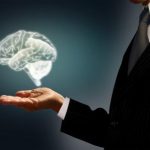
In the context of the above, I have tried to pay tribute, in particular, to Makers and Takers: The Rise of Finance and the Fall of American Business by Rana Foroohar, which I believe is a classic when it comes to describing the dilemma. Having disclosed all this, my goal is not to bash the “bad (read taker) guy”, but to reinforce the good (read maker) guys.

Starting with a bit of history – the vagus nerve has appeared in various contexts in earlier articles. Despite these previous articles, a quick summary seems in order, especially since this topic involves so much psychological and physiological context. The vagus nerve is one of 12 cranial nerves – it being the largest. It extends from the brainstem to the abdomen by way of multiple organs, including the heart and lungs.

Perhaps the best way to illustrate how this paradox works (as in “bites you”) is with a cross section (in summary form) of (just some) of the errors/biases that I have discussed in various articles. As always, I have tried to simplify (oversimplify?) the content so as to make it quickly digestible. For example: biases are not necessarily irrational (but can still be problematic).

The purpose of this article is to share some additional perspectives on intuition themes that are fundamental components of individual thinking – and in particular, describe some of their limitations. Simply put, your intuition is your initial impressions of the world around you – before you ‘learn’ specific principles. They reflect both expectations (belief) and experience (perception).

“I've lived through some terrible things in my life, some of which actually happened.” ― Mark Twain Of all of the the contexts (and I trust there are many) in which the Business Brain Model is relevant– amongst the most important is when it comes to decision making. I have written about this from several perspectives.

Just to be clear about terminology, groupthink is a phenomenon whereby individuals within a group strive for consensus to the extent they set aside their personal opinions and, in some cases, ‘inconsistent’ facts. While there is appeal (especially in a business context) for fast, “orderly”, “efficient” decisions, the trade-off can outweigh the benefits.

The obvious question arising as a result of these alarming results I reported on previously: What is a businessperson (any person) to do? The obvious (but impossible) solution is to avoid stress. Alternatively – could a businessperson (or anyone) deal with it effectively?

What could be the practical value (to the world of business) of an overview of the neuroscience of creativity/innovation? If nothing else – I hope to illustrate what a holistic phenomenon this is and encourage initiatives that could enhance cognition, creativity and innovation.








